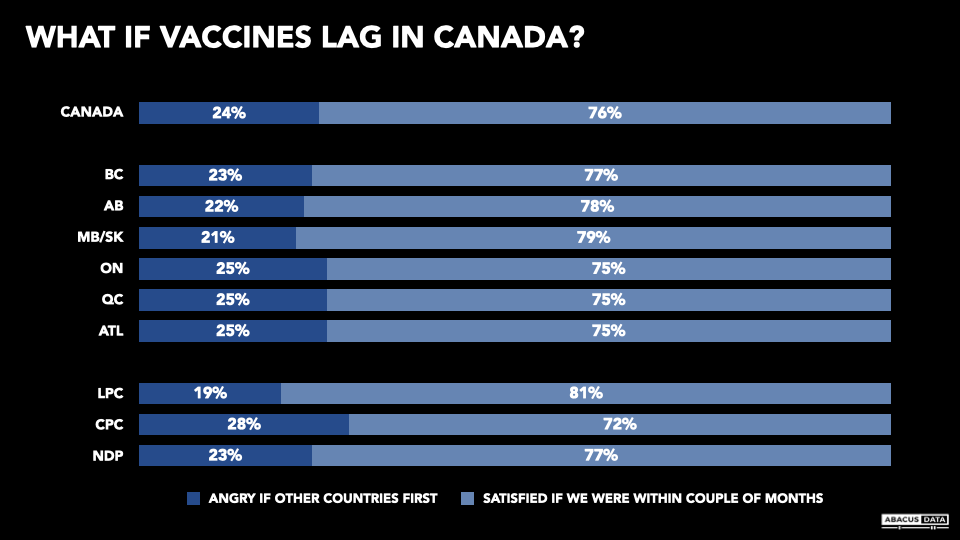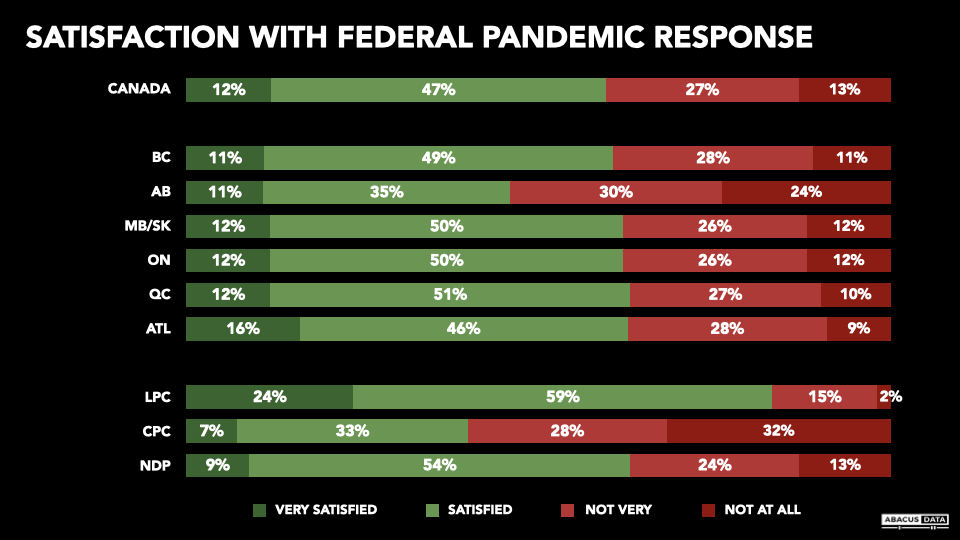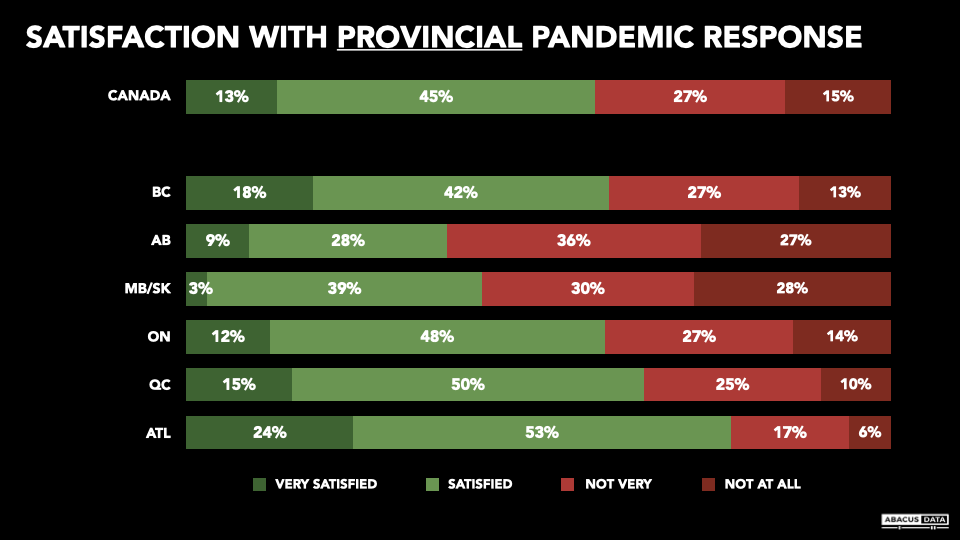Canadians are patient about COVID-19 vaccine availability
December 2, 2020
When asked when they think a vaccine will be made available to them personally in the new year, only 23% expect that will happen in the first quarter, another 27% guess the second quarter, 17% the third quarter, and 20% believe it will happen in October or later.
When asked if the timing they expected a vaccine to be available for them personally was excellent, good, acceptable in the circumstances or unacceptably slow, only 17% said it was too slow, and 83% said their imagined timing was acceptable or better than that.
Across party lines, 74% of Conservative voters said the timing they imagined was acceptable or better, only 27% said it was unacceptably slow. Supporters of other parties were more positive still.
As the chart below indicates levels of dissatisfaction are under a third for every month that a respondent guessed, with the exception of December (which was only picked by 3%).

We also asked if Canadians would be angry if people in other countries were able to get vaccinated before Canadians. A quarter said they would (24%) but the large majority (76%) said they would be “satisfied as long as Canadians are able to get access to doses within a couple of months of when they are available elsewhere.” This was the view of three-quarters of men and women, of all age groups, in every region. The only subgroups where an angry reaction was a bit more evident were Conservative voters (28% angry) and Bloc voters (39% angry).

Overall, 59% are satisfied with the “way the federal government has been handling its responsibilities for dealing with the COVID-19 pandemic. This includes a majority in every region of the country except for Alberta, where opinion is split (46% approve/54% disapprove).

Asked how they feel about their provincial government, the average is 58% nationally, with the highest numbers in Atlantic Canada and Quebec, followed by Ontario and BC at 60% satisfied. The lowest satisfaction is registered in Alberta, where 37% are satisfied and 63% dissatisfied with the way the Kenney government is handling the pandemic.

UPSHOT
According to Bruce Anderson: “Canadians are undoubtedly frustrated and worried by COVID-19 but they have been consistently showing patience and a bias for caution when it comes to what it will take to exit this pandemic. It’s unusual, to say the least when Albertans are more unhappy with the Kenney government on an issue than they are with the Trudeau government – but that’s the case as things now stand in regard to the pandemic.
Attitudes towards the availability of a vaccine continue in this vein, with most people appearing to feel that the federal government is doing its best to make reasonable choices in the circumstances and largely tuning out what may sound like politically motivated accusations of incompetence.
For most people, the availability of a vaccine is good news and their expectations of distribution and availability appear to line up with the outlook provided by the government so far. That could change of course, but so far Canadians are not particularly troubled by what they see as the outlook for vaccine access.”
MORE FROM ABACUS DATA
Earlier today, we also released new data showing that less than half of Canadians say they will not gather with family outside their household over the holidays.

ABOUT ABACUS DATA
We are the only research and strategy firm that helps organizations respond to the disruptive risks and opportunities in a world where demographics and technology are changing more quickly than ever.
Find out more about what we are doing to help clients respond to the COVID-19 pandemic.
We are an innovative, fast-growing public opinion and marketing research consultancy. We use the latest technology, sound science, and deep experience to generate top-flight research-based advice to our clients. We offer global research capacity with a strong focus on customer service, attention to detail and exceptional value.
We were one of the most accurate pollsters conducting research during the 2019 Canadian Election.

Contact us with any questions.
Find out more about how we can help your organization by downloading our corporate profile and service offering.
METHODOLOGY
The survey was conducted with 1,419 Canadian adults from November 26 to December 1, 2020. A random sample of panellists was invited to complete the survey from a set of partner panels based on the Lucid exchange platform. These partners are typically double opt-in survey panels, blended to manage out potential skews in the data from a single source.
The margin of error for a comparable probability-based random sample of the same size is +/- 2.1%, 19 times out of 20.
The data were weighted according to census data to ensure that the sample matched Canada’s population according to age, gender, educational attainment, and region. Totals may not add up to 100 due to rounding.




